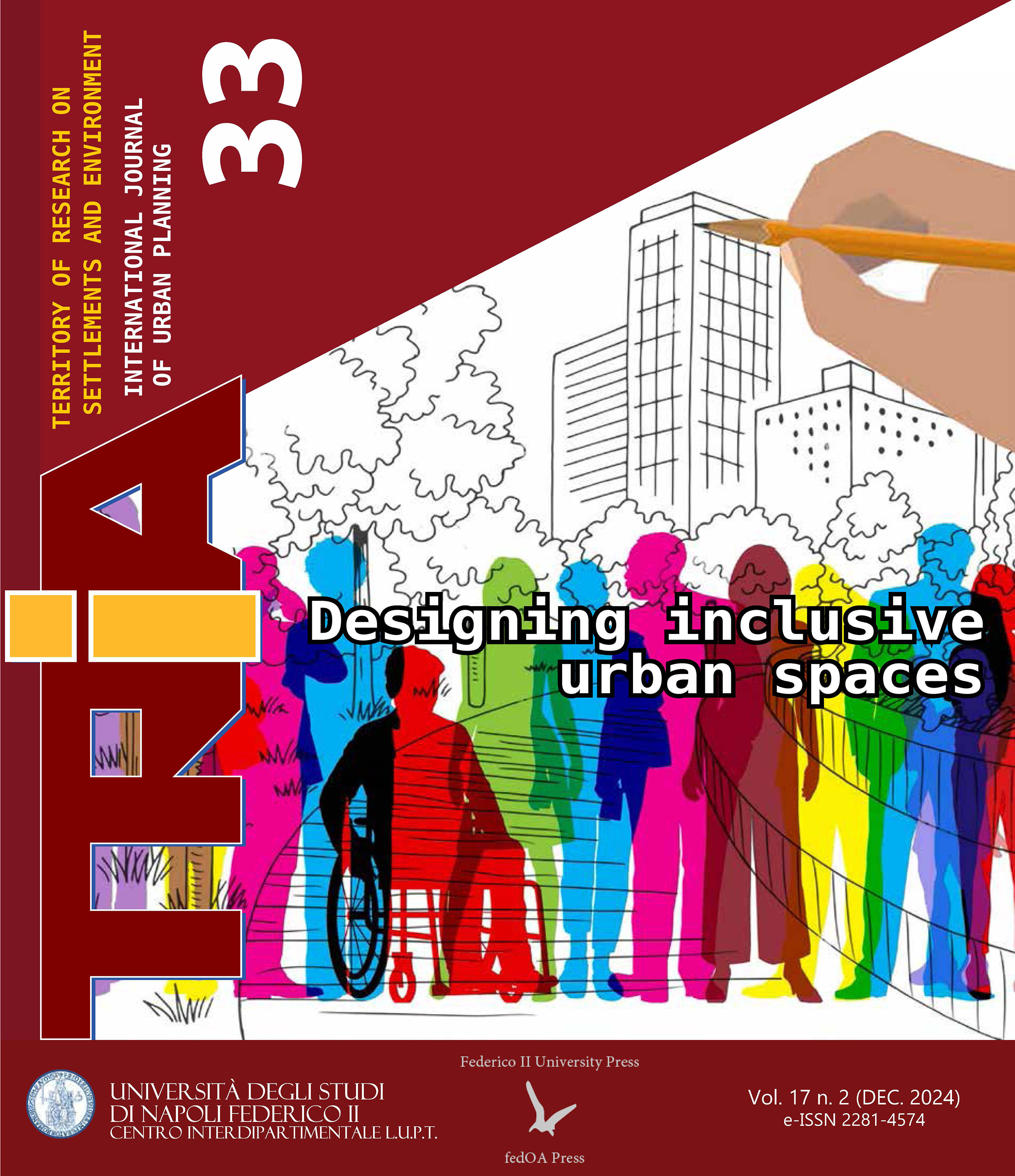Mutual learning between research and activism to investigate feminisms and urban commons in fragile contexts
DOI:
https://doi.org/10.6093/2281-4574/11463Abstract
Many urban settlements deal with fragile conditions resulting from socio-economic, environmental, and cultural issues, as well as from a mistrust that has arisen toward institutions and their ability to fulfil the social compact. In such contexts, commoning experiences enacted by informal communities, based on a feminist ethic of care, solidarity and mutual support, provide an interesting area for investigation of alternative models of urban management. The specific phenomenon of urban commons and the variety of practices developed under this umbrella concept offer an opportunity to reflect on the interpretation of feminisms in the city, through experiences that concern not only the reclaiming of — physical and symbolic — spaces but also of resources, services and rights, which are expressions of collective approaches to the priorities of everyday life. The researchers investigated these issues from the vibrant political landscape of urban commons and feminisms in the city of Naples (Italy), activating a mutual learning process with a group of activists regarding the research topics. Through the interaction, discussion, and systematization of different theoretical backgrounds and communing experiences, consistent with the methodology adopted of the community of practice, the research protocol aims to decode the processes that informal communities activate in fragile territories, starting with the taking over of an abandoned asset in order to promote its civic uses.
Downloads
Downloads
Published
Issue
Section
License
Gli autori che pubblicano su questa rivista accettano le seguenti condizioni:- Gli autori mantengono i diritti sulla loro opera e cedono alla rivista il diritto di prima pubblicazione dell'opera, contemporaneamente licenziata sotto una Licenza Creative Commons - Attribuzione che permette ad altri di condividere l'opera indicando la paternità intellettuale e la prima pubblicazione su questa rivista.
- Gli autori possono aderire ad altri accordi di licenza non esclusiva per la distribuzione della versione dell'opera pubblicata (es. depositarla in un archivio istituzionale o pubblicarla in una monografia), a patto di indicare che la prima pubblicazione è avvenuta su questa rivista.
- Gli autori possono diffondere la loro opera online (es. in repository istituzionali o nel loro sito web) prima e durante il processo di submission, poiché può portare a scambi produttivi e aumentare le citazioni dell'opera pubblicata (Vedi The Effect of Open Access).


